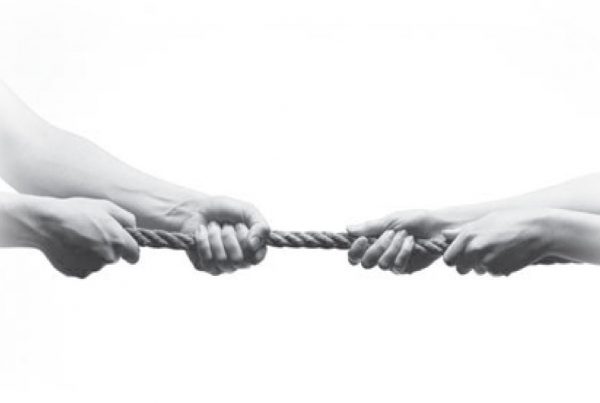
“They were in the kitchen together. She took out the leftover pie. She said “do you want to have some pie?” and he said “no thanks”. She suddenly felt upset but did not say anything. She started thinking “what on earth am I upset about? Why should I care whether he has a piece of pie? What’s my problem?” Later that day, they were out driving together. She commented “Isn’t that view lovely?” and he said “mmm” without looking. She immediately felt angry.”
Does this seem familiar? Have you found yourself in similar situations with your own romantic partner? I certainly have. I remember feeling very confused about my reactions because they seemed illogical, especially because my husband is a lovely and caring person. But I still felt upset at these seemingly small incidents. And then one day, I came across the research findings of John Gottman, one of the top relationship researchers on the planet, and suddenly the fog lifted and the light bulbs came on: I was dealing with “failed bids for connection”!
A bid for connection is something you do to try and connect with your partner. It can be verbal, as in “how was your day?” It can be behavioral, as in reaching out to hold a hand. It can be subtle, like the suggestion of sharing pie together. It can be obvious, like saying “I need a hug right now”. When we bid for connection with our partners, we are giving the message “you are important to me; am I important to you?” When we get a positive response to our bid, we get the message “yes, you are important to me and I am here for you”. A failed bid for connection occurs when we make our bid and we get no response or a response that sends the message “leave me alone”.
But why does it matter so much that our partners respond to our bids? Why can it be so emotionally powerful? The answer lies in human attachment, the emotional system we all have in us that works to keep us feeling connected to a significant other. Attachment is the system that connects parents and babies. It also becomes active when you are in a romantic relationship. The attachment system is part of our survival strategy; it guides us to connect to a significant other to ensure safety. So when we feel connected, we feel safe and secure. When we feel disconnected, we feel scared and anxious. That fear often turns to anger and motivates us to fight for reconnection. Remember, this is survival after all!
When we bid for connection with our partners, we are doing maintenance on the attachment system. We are giving the message “I care about you; do you care about me?” A positive response says “Yes I care about you and I will respond to you.” That’s the message our attachment system likes to hear. That’s the message that keeps it running smoothly.
So how can we be better at bids for connection? An important strategy is to build in regular connection points. These are things like: a kiss and a hug as you part each day for work; a hug and “how was your day” when you come back together at the end of the day; a “good morning, darling” when you wake up and a “sleep tight” when you put your head on the pillow ready for sleep. Mealtimes when you are sure to be together and paying attention to each other are also reassuring to the attachment system. Consistent and predictable connection points are the key. Create as many as you need for you both to feel connected and then treat them like the relationship gold that they are.
Another way to get better at bids for connection is talk about them with your partner. See if you can identify the bids you and your partner make and talk about the responses you like. Talk about what additional responses would help you feel more connected. Remember, you don’t have to be perfect and make sure you respond to every bid your partner makes. What is important is that you are responsive enough to keep your partner’s attachment system feeling calm and contented, and vice versa. Only by talking to your partner will you know what he or she needs to make that happen.
If you want to learn more about attachment in adult relationships, Sue Johnson’s book “Hold Me Tight” is a good resource or you can find a great article by Sue at psychologytoday.com



